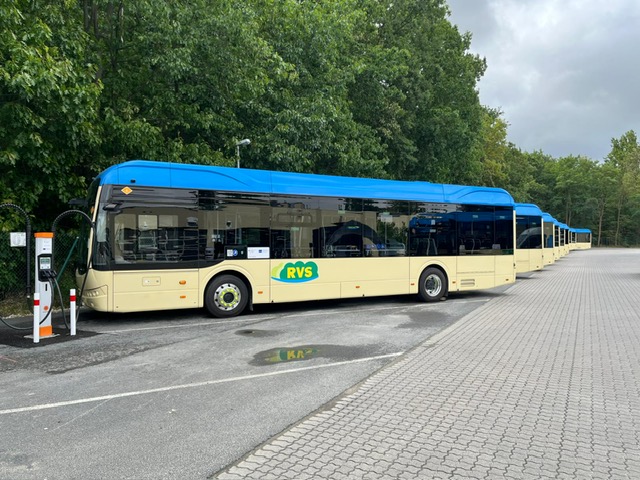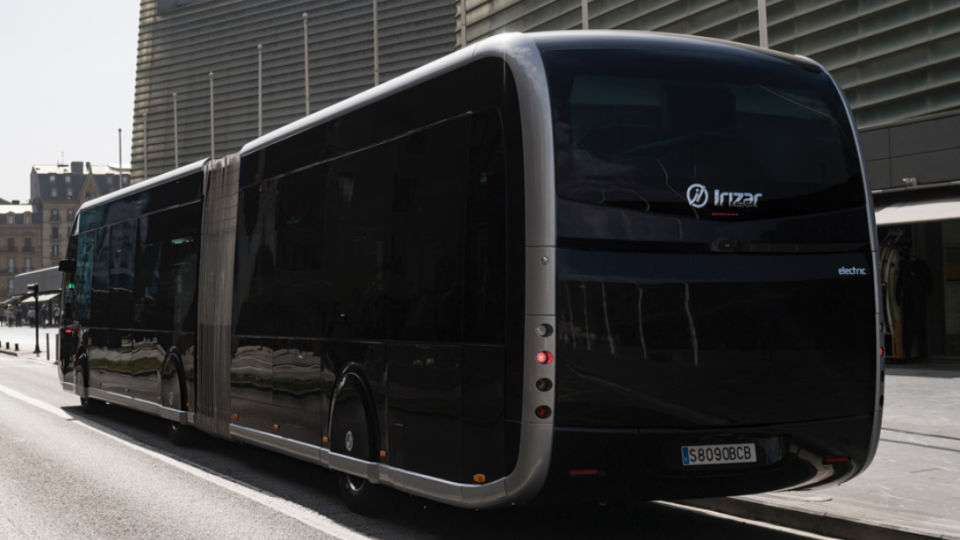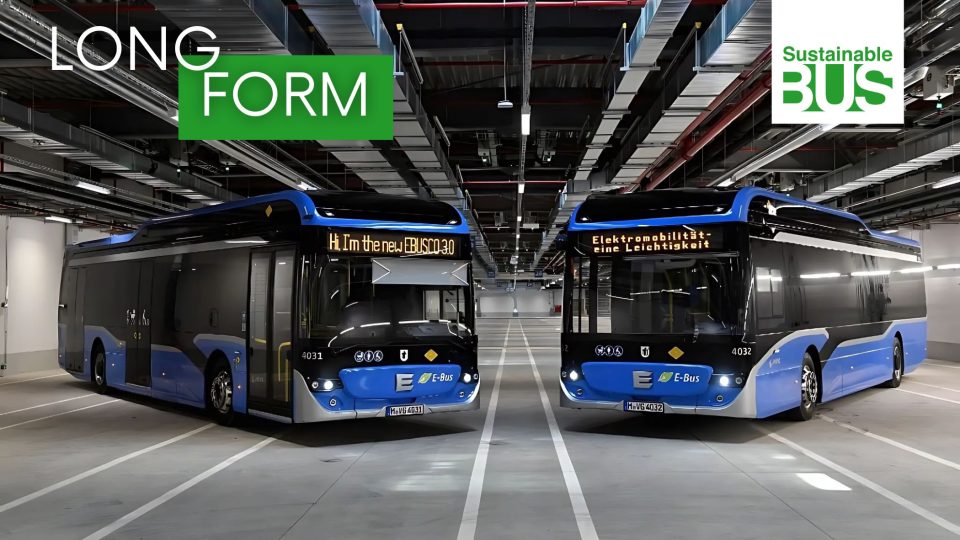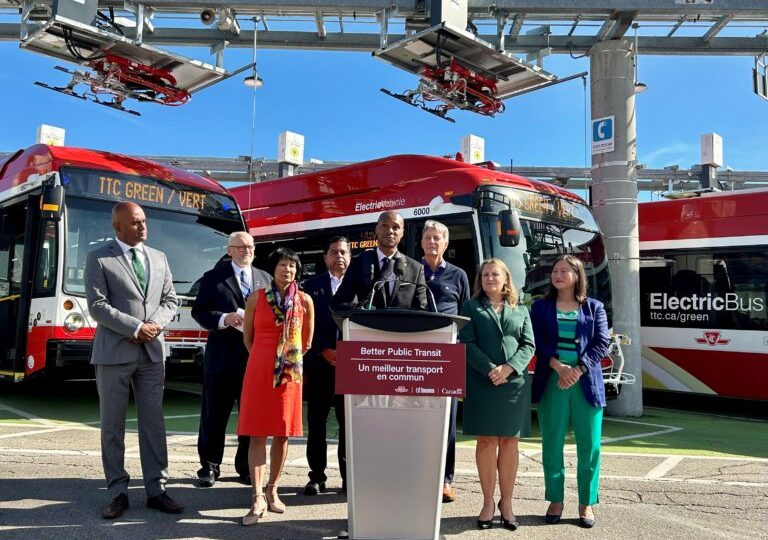TransLink has selected Nova Bus: 15 LFSe+ electric buses for Vancouver
Canada: TransLink has selected Nova Bus for a supply of 15 electric buses LFSe+. The vehicles are set to be in operation in Vancouver within Metro Vancouver’s transportation network. TransLink will be adding these to their two LFSe vehicles delivered in 2019 as part of the Canadian Consortium for Urban Transportation Research and Innovation (CUTRIC) […]
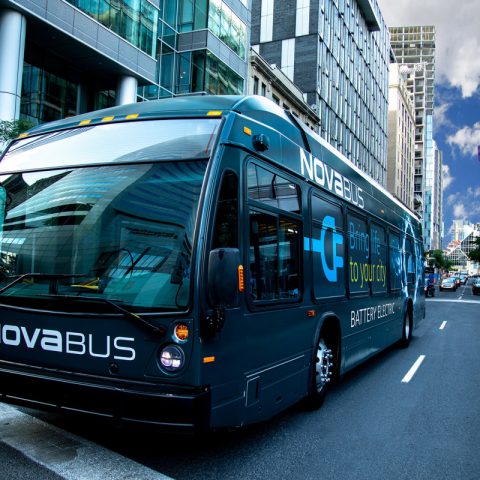
Canada: TransLink has selected Nova Bus for a supply of 15 electric buses LFSe+. The vehicles are set to be in operation in Vancouver within Metro Vancouver’s transportation network.
TransLink will be adding these to their two LFSe vehicles delivered in 2019 as part of the Canadian Consortium for Urban Transportation Research and Innovation (CUTRIC) Canada-wide Interchangeability Project, totalling their fleet to 17 Nova Bus electric vehicles. These long-range battery-electric buses can travel between 340 to 470 km on a single charge, the manufacturer highlights.
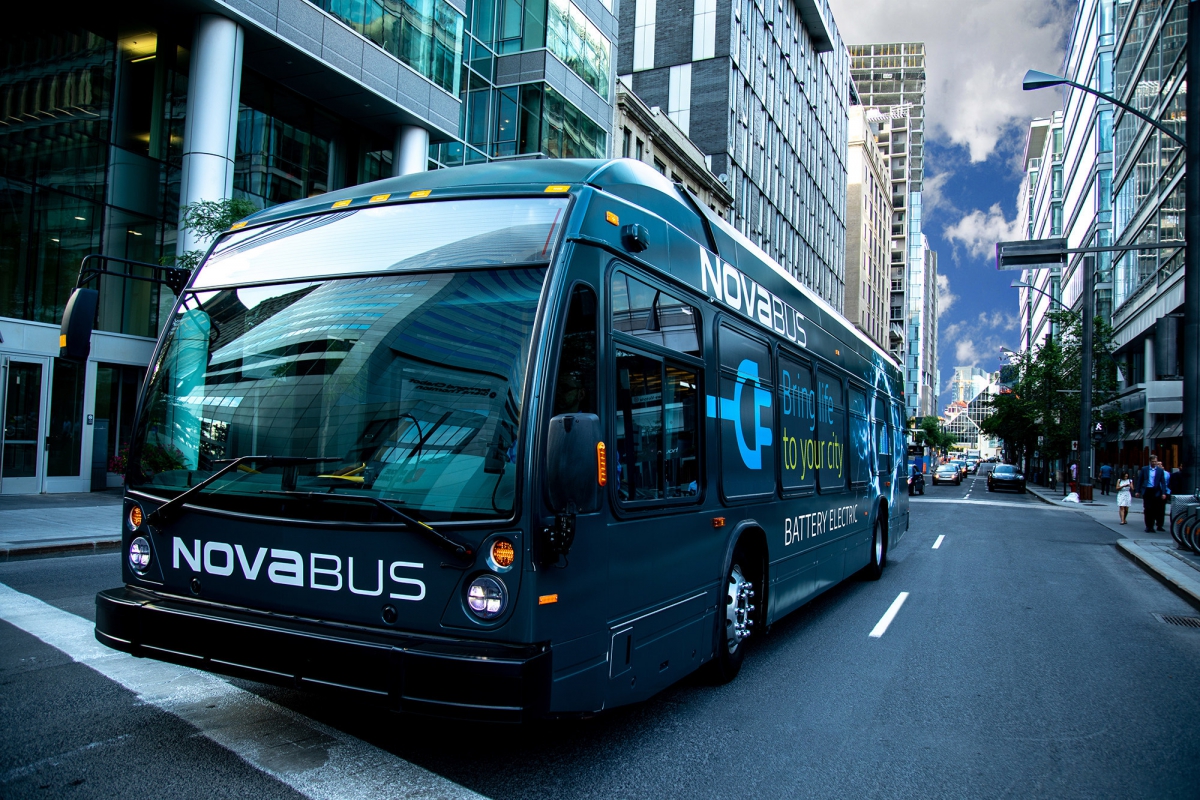
Nova Bus LFSe+ for Vancouver
Built on the proven Nova Bus LFS platform, the LFS+ model, launched in late 2019, is designed to be just as reliable. In fact, the Nova Bus LFSe, on which the new LFSe+ is modeled, was the first electric bus in the industry to receive a passing score for a full test at Altoona in June 2018, Nova Bus points out.
The new LFSe+ integrates the proven traction motor and power electronics which uses advanced materials such as silicon carbide to improve heat management. The lower weight and increased power density contributes to bus performance and durability. The Nova Bus LFSe+ is powered via traction motor and power electronics from BAE Systems.
It features a battery capacity of 594 kWh, as it was made public at the time of the bus launch. The LFSe+ offers dual charging options to keep it going: OppCharge and depot charging. The common-interface OppCharge technology, developed by Volvo and partners, uses a pantograph mounted on an external infrastructure for quick charging while in service.
Canada: 5,000 e-buses in operation in 5 years
“Canada needs to be at the front of the trillion-dollar global clean tech economy, and our zero- emission bus makers like Quebec’s Nova Bus can help lead the charge,” said the Honourable Catherine McKenna, Canada’s Minister of Infrastructure and Communities. “We’re committed to helping put 5,000 new zero-emission public transit and school buses in Canadian communities over the next five years, and every new contract moves us toward that goal. Canada’s infrastructure plan invests in thousands of projects, creates good jobs across the country, and builds cleaner, more inclusive communities for a net-zero emissions future.”
“It is a great pride for Quebec to see Nova Bus’ electric buses gaining ground in Canada. I have often said: the electrification of transportation is fundamental for the future of public transit. We are counting on the leadership and expertise of Nova Bus to make Quebec one of the North American leaders in this field and we will help it if necessary,” said Pierre Fitzgibbon, Quebec’s Minister of Economy and Innovation.
Nova Bus LFSe+, sustainability in public transport
“We are proud to continue supporting TransLink with our newest fully electric, high quality transit buses that deliver a safe, clean, and reliable ridership experience,” said Martin Larose, Vice President and General Manager of Nova Bus. “As more cities demand reduced GHG emissions and greater sustainability, we are meeting that need with our LFSe+, the perfect pairing of our proven expertise with the latest innovations in clean and sustainable technologies.”
“Today’s announcement is about ensuring we continue our important transition toward a greener and more efficient transit system. Zero-emission battery-electric buses are the future of the transit industry, and this order more than quadruples our existing battery-electric bus fleet, bringing us one step closer to achieving our aggressive climate targets. TransLink already has one of the biggest electric trolleybus networks in North America, with 262 trolleybuses in service, and a SkyTrain network operating entirely on electricity. It’s exciting to be able to build on our success and move into a more sustainable era for public transit in Metro Vancouver,” said Kevin Desmond, TransLink CEO.




